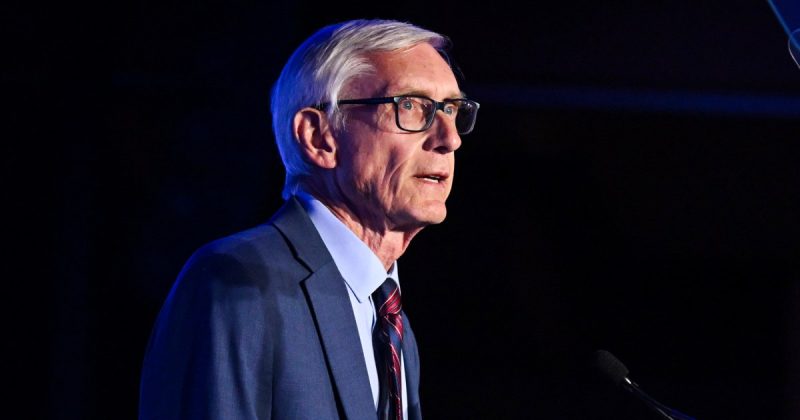
Wisconsin, a consistently tight battleground state, is holding its breath. The 2026 gubernatorial election hangs in the balance, largely dependent on the decision of Governor Tony Evers, a Democrat, regarding a third term. His announcement, expected soon after a recently concluded budget deal with the Republican-controlled legislature, will send shockwaves through both parties.
Evers, at 73, has been a key figure in a state where Democratic governors are a rarity. His potential re-election bid takes on added significance given the fact that Wisconsin is one of only five states with a Democratic governor that voted for Donald Trump in the last presidential election. The outcome will significantly impact the political power dynamics in the state.
Wisconsin Democrats are eager for a decision. State Senator Kelda Roys, who previously ran against Evers in the Democratic primary, voiced her desire for a swift resolution, emphasizing the need to strategize and focus on upcoming elections. The urgency stems from the importance of securing crucial wins in the state’s political arena.
Adding another layer of complexity to Evers’ decision is the shifting political landscape in the state. A landmark 2023 Supreme Court ruling overturned gerrymandered legislative maps, offering Democrats a more realistic chance of gaining control of either the state Assembly or Senate in the 2026 elections. This possibility of a less hostile legislative environment is a major factor in Evers’ considerations, as it could significantly alter his ability to govern effectively.
While some Democrats believe Evers, with his incumbency and popularity, remains the party’s strongest contender, others advocate for a generational shift within the party, particularly in light of the 2024 presidential election results. However, recent polling data suggests significant Democratic support for Evers’ re-election bid, with 83% of Democrats expressing their backing. Although his overall approval rating remains relatively balanced, the support level is considered strong by historical standards, exceeding that of former Republican Governor Scott Walker before his unsuccessful 2018 re-election campaign.
Should Evers decide against a third term, a crowded and potentially divisive Democratic primary is anticipated. Several prominent Democrats, including Attorney General Josh Kaul, Lieutenant Governor Sara Rodriguez, Secretary of State Sarah Godlewski, Milwaukee County Executive David Crowley, and Milwaukee Mayor Cavalier Johnson, could vie for the nomination. The potential for a messy and costly primary is a concern for many within the party.
On the Republican side, the field is less certain but still presents a formidable challenge. Josh Schoemann, Washington County executive, is the only declared candidate, but other potential candidates include businessman Eric Hovde, who narrowly lost the 2024 Senate race, Tim Michels, who lost to Evers in 2022, and U.S. Representative Tom Tiffany. Regardless of Evers’ decision, the race promises to be fiercely contested.
Evers’ strategic timing – waiting until after the budget deal – is seen by some as a calculated move. It allows him to potentially exit on a high note, showcasing legislative accomplishments, or solidify his position for another term. Republican strategist Brandon Scholz suggests that Evers could frame his potential departure as a successful culmination of his goals, highlighting achievements like increased funding for the University of Wisconsin system and childcare initiatives. Conversely, Evers’ allies argue that delaying his announcement maximized his influence during budget negotiations.
While Evers’ senior advisor remains tight-lipped, many Democrats believe the governor has likely made his decision and will indeed seek re-election. The improved legislative prospects, his continued popularity, and the risk of a divisive primary all point towards a third term bid. The coming weeks will undoubtedly bring clarity to this pivotal moment in Wisconsin politics.










